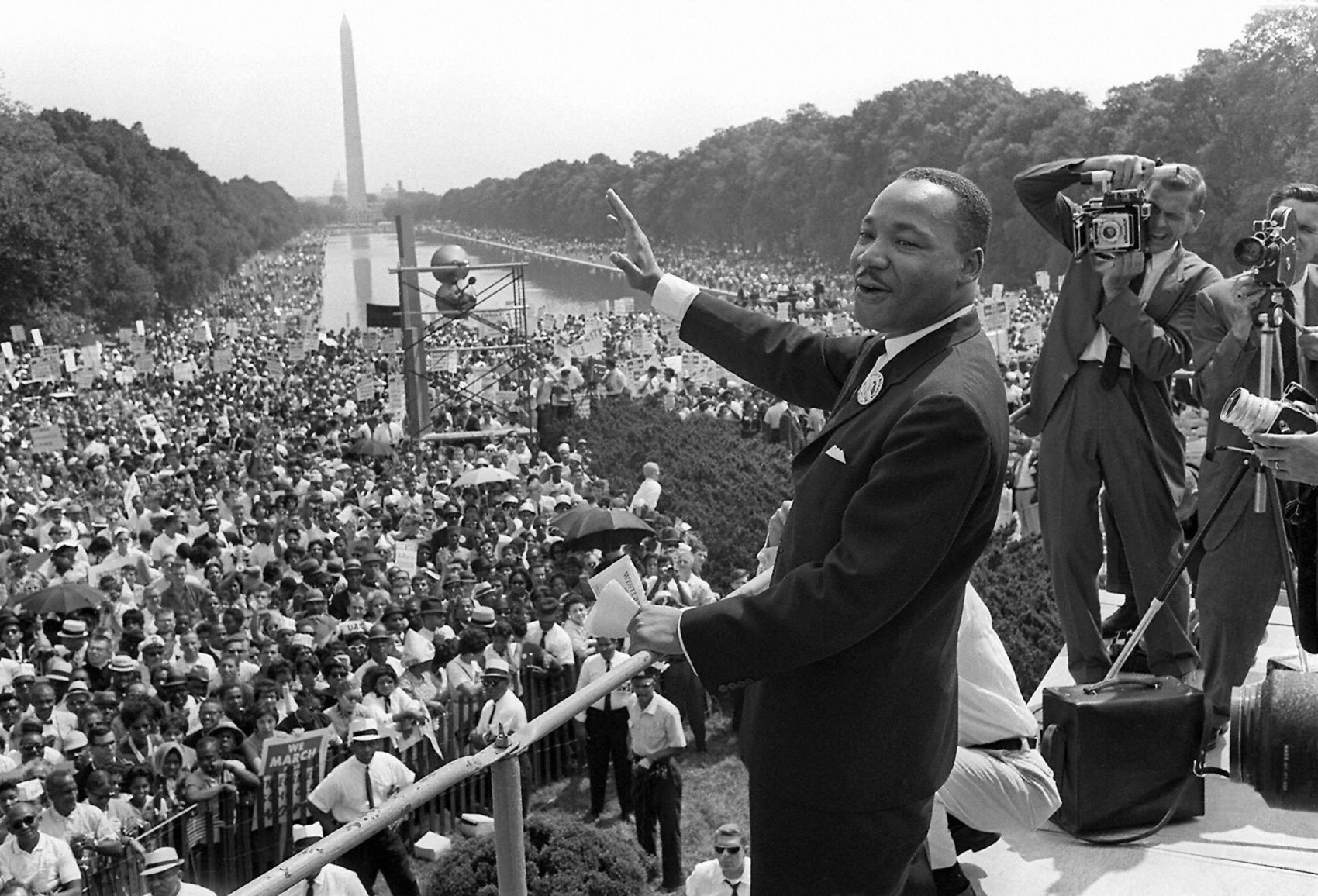Exploring the History Behind MLK Day
01/13/2023 11:59
The third Monday in January is national Martin Luther King Day in the US. This year, it takes place on January 16 and marks the 60th anniversary of this national holiday that honors the work of Martin Luther King. Notably the Civil Rights Movement and his fight for equal rights for all, and freedom.
But what’s the history behind Martin Luther King Day, and how did it become an official US holiday?

King and the Civil Rights Movement
King was a Baptist minister in the 1950s, and following his marriage to Coretta Scott, they settled in Montgomery, Alabama, where King was pastor of the Dexter Avenue Baptist Church. Montgomery was a city that was highly segregated. It became the center of the fight for civil rights after the arrest of Rosa Parks in 1955 for not giving up her seat in the segregated section of a bus to a white passenger. King formed the Montgomery Improvement Association (MIA), putting him at the heart of African and Black Americans’ fight for civil rights and, later, the Civil Rights Movement.
King became the Montgomery Bus Boycott’s leader and official spokesman, putting enormous strain on the city’s public transport system and associated business owners. When the US Supreme Court ruled that segregated bus seating was unconstitutional in late 1956, King was already becoming a national civil rights hero, admired for his organized, non-violent approach.
By 1957, a proportion of southern states in the US made it very difficult for African Americans to vote, which was their civil right according to the Civil Rights Act of 1957, which President Eisenhower had signed into US law that year.
Despite King and his family moving back to Atlanta, he continued to move up the ranks of the Civil Rights Movement. He was actively involved in a series of boycotts, marches and other protests against segregation, unfair employment practices, housing discrimination and racialism. At one point, King was arrested and spent time in jail, where he wrote the ‘Letter from Birmingham Jail’, his civil rights manifesto.
On August 28, 1963, over 250,000 people marched into Washington, DC campaigning for equal rights. Well-known civil rights activist, A organised the march. Bayard Rustin and Martin Luther King assisted Philip Randolph.
At the Lincoln Memorial that day, famous speakers, such as Congressman John Lewis, the founder of the Student Nonviolent Coordinating Committee (SNCC), spoke to the crowds. Martin Luther King’s speech was the last to be heard; midway through his speech, he stopped talking from his prepared notes and spoke from the heart instead, starting with his famous words – “I have a dream…”. King shared his vision of the future; so powerful was his speech that it galvanized the Civil Rights Movement, and those four words went down in the history books, becoming the slogan for equality and freedom.

The history of MLK Day
Martin Luther King will forever be known for his famous speech in the March on Washington, but he also delivered many other speeches. He was the most influential African American civil rights leader during the 1950s and 1960s. He was particularly noted for his involvement in bringing about the Civil Rights Act of 1957 and 1964 and the Voting Rights Act of 1965. In 1964, King was awarded the Nobel Peace Prize.
Alongside other civil rights leaders, his actions directly impacted the abolition of racial discrimination in employment, facilities and housing. His work on persuading the government to legislate against segregation for African Americans and discrimination against Black Americans never ceased. He witnessed several Acts becoming law, except for the last legislation signed into law during the civil rights period, the Fair Housing Act. This Act abolished housing discrimination based on national origin, race, sex and religion.
The sad reason Martin Luther King, Jr. didn’t get to witness this legislation becoming law was that King was assassinated on April 4, 1968, at his hotel following a speech he’d made at a civil rights rally.

The making of an official MLK Day
Martin Luther King often spoke passionately about peace, love and justice in his battle to bring racial equality to every person in the world. Within days of King’s assassination, African Americans and white Americans called for a national holiday to be created in his honor. But while Congress introduced legislation supporting a federal (national) holiday in 1968, the opposition was still strong on political and racial grounds.
However, there was a growing number of cities and states in the US that decided to use King’s birthday – January 15 – as a holiday. It wasn’t until 1983 when President Reagan passed federal legislation to make the third Monday in January national Martin Luther King Day. That said, MLK Day wasn’t celebrated until three years later, in 1986, and it wasn’t until 2000 that every state in the US made that day a national holiday.
MLK Day allows all Americans to celebrate the life and legacy of Martin Luther King, Jr. Many towns, cities and states across the US host a series of events, colorful parades, marches and speeches to honor King’s fight for racial justice and equality. It is also an opportunity to reflect on his legacy and how his beliefs, and his dream, have impacted the civil rights issues of today.
Educational establishments have the chance to study and teach how current events surrounding a person’s civil rights, no matter their race, color, origin, religion or beliefs and how this is connected to history, including race relations, diversity, inclusion and equity.
Martin Luther King Day on Monday, January 16, 2023, allows everyone to apply his ‘Golden Rule’ – to treat all people the way you would want to be treated, no matter their color, race, or creed.
 USD
USD  GBP
GBP  CAD
CAD  AUD
AUD 